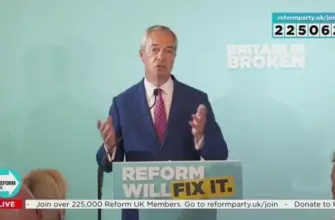The Health Secretary, Wes Streeting, recently asserted that the National Health Service (NHS) is “on the road to recovery,” a claim met with scrutiny during an interview on GB News.
Streeting highlighted recent progress in addressing shortages within the NHS workforce, noting the recruitment of over 1,500 new GPs. He attributed this success partly to streamlining bureaucratic processes and securing funding—supported by decisions made by the Chancellor—to support GP practices.
“We inherited a paradoxical situation where patients struggled to access a GP while qualified doctors found it difficult to secure employment,” Streeting stated. “By cutting through unnecessary red tape and providing sustained financial backing, we’re actively working to resolve this imbalance.”
He emphasized the government’s commitment to fulfilling its promises of improvement for the NHS. “I want to reassure viewers that we are keeping our promises, and the NHS is indeed moving toward recovery,” Streeting confirmed, adding a note of caution: “However, much work remains.”
The conversation took a sharp turn when GB News host Ellie Costello raised concerns about the impact of increasing population levels on the already strained healthcare system. Costello questioned how the NHS could effectively address the needs of current patients—many of whom are struggling to secure GP appointments—amidst a rising tide of new residents.
“You can’t repair the front door of the NHS, or restore access to family doctors, without addressing migration,” Costello challenged Streeting.
According to figures from the Office for National Statistics (ONS), one in six new registrations in England are attributed to overseas migrants. In certain London boroughs, this figure rises dramatically, exceeding 40%. The ONS further projects a near five million increase in the UK population by 2032.
Streeting acknowledged the issue of over-reliance on foreign recruitment to fill skills gaps within the economy, including the NHS. While expressing gratitude for the contributions of international healthcare workers, he conceded that net migration levels are too high and pledged action to bolster domestic talent acquisition.
“We need to reduce our dependence on overseas recruitment,” Streeting stated. “I will be working with the Home Secretary to take steps in this direction.”
He further outlined plans to address a situation where UK-trained medical graduates are competing alongside international applicants for available positions, deeming it “a crazy position.”
Streeting concluded by reaffirming the government’s commitment to investing in homegrown talent and reducing reliance on foreign workers:
- Addressing inequalities between UK and overseas graduates in job applications.
- Collaborating with the Education Secretary to create broader training opportunities across healthcare roles.
- Investing in skills development for British citizens within the health and care sector.
“Our goal is clear: reduce our reliance on overseas workers by empowering and investing in the skills and opportunities of our own people,” Streeting asserted.







